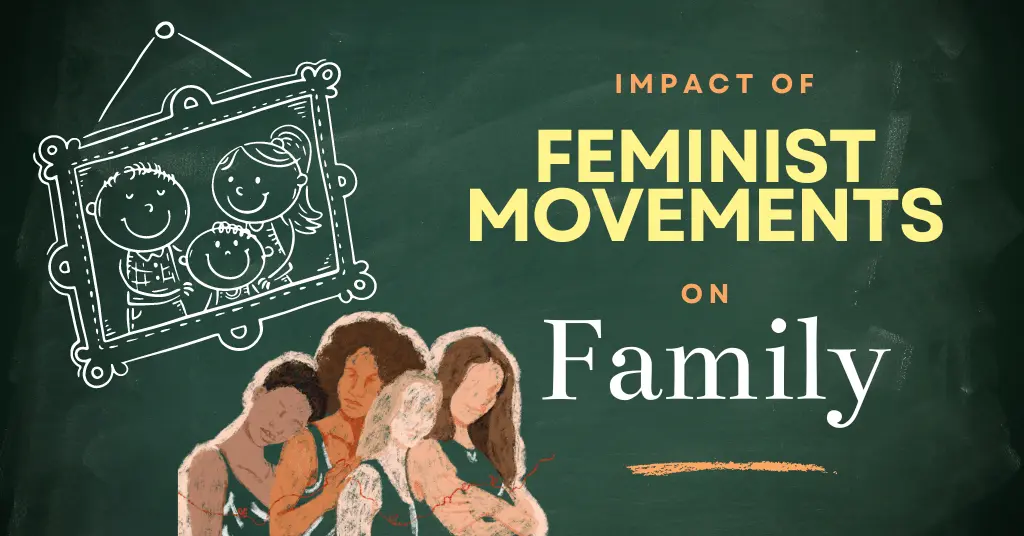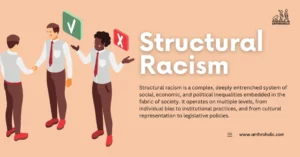AI Answer Evaluation Platform Live Now. Try Free Answer Evaluation Now
Impact of Feminist Movements on Family
The feminist movements have undeniably been monumental in shaping societies globally, advocating for equality and challenging traditionally entrenched gender norms. Over the years, these movements have played a significant role in transforming familial structures and dynamics.

Historical Context
The feminist movements have evolved over time, bringing about various waves of feminism. First-wave feminism, primarily centered around legal issues, particularly women’s suffrage, came to the fore in the late 19th and early 20th centuries. Second-wave feminism emerged in the 1960s to 1980s, extending the fight to cultural and social issues. It was during this period that feminist movements started to significantly influence family dynamics. Third-wave feminism, which started in the mid-1990s, brought an emphasis on individuality and diversity. Today, we are in the midst of fourth-wave feminism, which leverages technology to combat issues like sexual harassment, body shaming, and sexism (Whelehan, 2015).
Impact on Family Structures
1. Rise of Dual-Income Families
Feminist movements advocating for women’s economic independence have led to a surge in dual-income families. As more women pursued careers, the traditional family structure started transforming.
Table 1. Percentage Increase in Dual-Income Families Over the Years
| Decade | Percentage of Dual-Income Families |
|---|---|
| 1960s | 25% |
| 1980s | 40% |
| 2000s | 60% |
| 2020s | 65% |
2. More Shared Responsibility in Housework
Feminism’s push for equal responsibility has led to more equitable distribution of household chores, challenging the traditional notion of women being solely responsible for domestic tasks.
3. Influence on Parenting Styles
Feminism’s influence on family also extends to parenting styles, promoting more egalitarian, cooperative styles over authoritarian ones.
Impact on Family Relationships
Feminism’s influence on family relationships is also noteworthy. It has brought shifts in the roles of family members and significantly impacted gender dynamics within the family.
1. Encouraging Emotional Openness in Men
Feminist movements have challenged traditional notions of masculinity, encouraging men to be more emotionally open. This shift has allowed more open and healthier communication within families.
2. Promoting Equal Partnership
Feminism has championed the idea of marriages and relationships being equal partnerships, with both parties sharing responsibilities and decision-making.
3. Advocating for Children’s Rights
Feminism has been instrumental in advocating for children’s rights, including their right to express their views and be protected from harm.
Challenges and Criticisms
While the impact of feminism on family has been largely positive, there are challenges and criticisms. Some argue that feminism’s emphasis on individuality can undermine family cohesion. Others suggest that the increase in dual-income families can lead to familial stress due to work-life balance struggles.
Analysis and Evaluation
Having laid the groundwork for the historical context and noted the impacts and challenges, it is crucial to dissect these aspects critically and holistically.
Dual-Income Families and their Repercussions
While the rise of dual-income families has given women an avenue to express their skills and capabilities, it has also brought about a set of unique challenges.
1. Stress and Work-Life Balance
Balancing professional commitments and family responsibilities can be a source of stress, affecting the mental and physical health of family members.
2. The ‘Second Shift’
Hochschild’s term, the ‘second shift,’ refers to the unpaid housework and child care that women often undertake after their paid workday. Despite greater participation in the workforce, women often continue to shoulder a disproportionate share of household chores, reinforcing gender inequality (Hochschild, 1989).
Family Relationships and Gender Dynamics
1. Shifting Power Dynamics
Feminism’s emphasis on equality and shared decision-making has disrupted traditionally patriarchal power dynamics. This shift, though significant for progress, can lead to conflict and discord as families adjust to the changes.
2. Emotional Openness in Men
While the encouragement of emotional openness in men is generally beneficial, it can be met with societal resistance, especially in societies with strong traditional masculinity norms.
3. The Role of Feminism in Children’s Rights
The advocacy for children’s rights is significant, but some critics argue that this can potentially erode parental authority and disrupt family hierarchies.
Table 2. Pros and Cons of Feminist Influences on Family
| Positive Impacts | Challenges |
|---|---|
| Economic Independence for Women | Work-Life Balance Stress |
| Equal Partnership in Relationships | The ‘Second Shift’ |
| Promotion of Children’s Rights | Potential Erosion of Parental Authority |
Moving Forward: Feminism and Future Families
The impacts of feminism on the family unit are continually evolving. Here are some potential future developments:
1. Continued Evolution of Family Structures
Family structures are likely to continue diversifying. We may see further normalization of single-parent families, LGBTQ+ families, and families where men take on primary caregiving roles.
2. Greater Emphasis on Work-Life Balance
There might be a push for more family-friendly workplace policies, such as flexible hours and parental leave, aiming to alleviate the stress related to work-life balance.
3. Continued Advocacy for Equality
Feminism will likely continue advocating for equal distribution of housework and child care, challenging gender norms, and promoting children’s rights.
Conclusion
The feminist movements have undeniably reshaped the concept of family, redefining roles and relationships within it. While this transformation brings its challenges, the strides made towards a more egalitarian family structure are significant. As feminism continues to evolve, it will undoubtedly continue influencing family dynamics in nuanced ways.
References
- Hochschild, A., & Machung, A. (1989). The Second Shift: Working Parents and the Revolution at Home. Viking.
- Whelehan, I. (2015). Contemporary feminism. In The Encyclopedia of Political Thought. doi:10.1002/9781118474396.wbept0174
- U.S. Bureau of Labor Statistics. (2023). Women in the labor force. Retrieved from www.bls.gov
Postscript: A Call to Action
The feminist movement must continue to advocate for change in both the public and private spheres, pushing for systemic changes that will facilitate a more equitable distribution of paid and unpaid labor within families. It must also continue to challenge and reshape societal norms around masculinity and femininity, thus promoting healthier, more open, and more equal relationships within families.
Families, too, have a crucial role to play in this endeavour. They must be open to evolving and adapting, embracing changes that might be uncomfortable in the short term but are likely to result in healthier, happier, and more equal relationships in the long run.
As a society, we must support these transformations by promoting and normalizing flexible and family-friendly policies in workplaces, championing the rights and welfare of children, and continuing to advocate for gender equality in all aspects of life.



